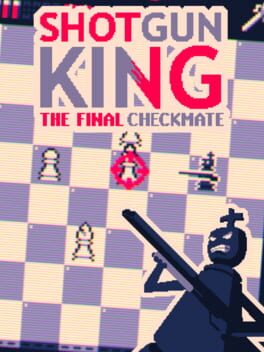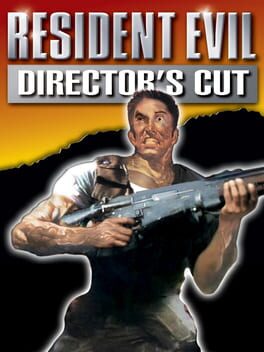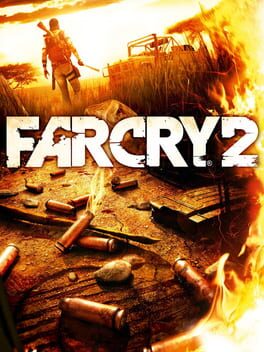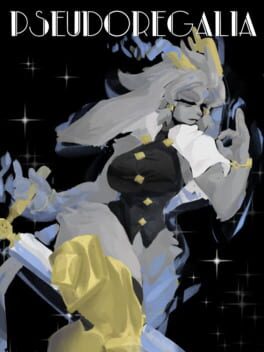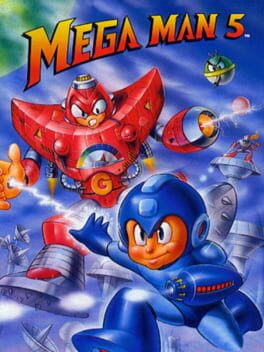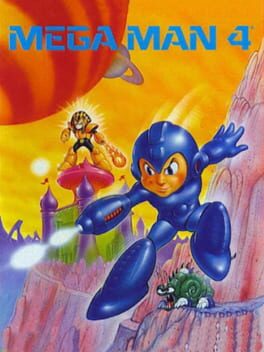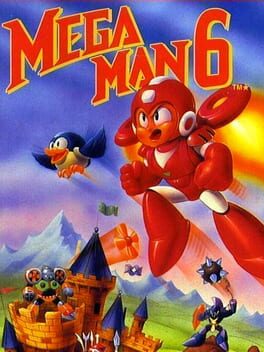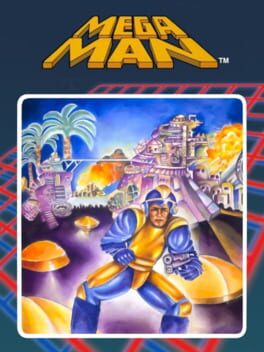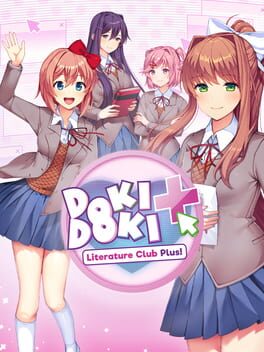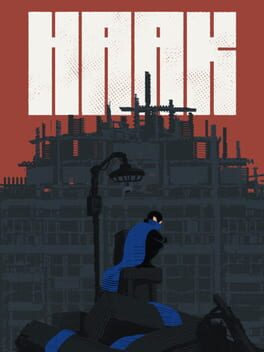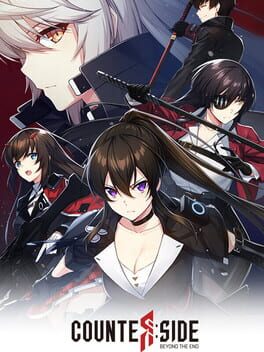Enjoyable concept for a cheap roguelike. I could do with a few QOL changes, as the arc + range not giving you a damage indicator before firing can be really frustrating when you're trying to calculate future moves. Card synergies are cool, with blade and throw in particular being fun to use.
Probably won't explore this one's content to the fullest, but what I did experience (rank 1-3 of throne and three of the shotguns) was a fun time.
Probably won't explore this one's content to the fullest, but what I did experience (rank 1-3 of throne and three of the shotguns) was a fun time.
There are a few reviews here giving the Director's Cut version of RE1 shit, getting it mixed up with the Dual-Shock DC that has the clown car music. That one deserves everything it gets but I believe the original DC is the definitive way to play classic Resident Evil 1 aside from the DS port. What a fantastic game and start to the franchise.
Assuming you're already comfortable with the tank controls that the series utilizes up to 5, RE1 DC holds up fantastically. There are some PSX era flourishes that could be changed for quality of life purposes (quick map button, auto-knife equip with button-press) that the DS version introduces but this version still plays very well for being close to 30 years old. More than any other game in the series, it feels like one big puzzle that becomes an absolute joy to put together quickly on replays. Ammo, healing, items, and enemies are all placed and paced in an almost perfect, deliberate manner. The Spencer Mansion is beautifully simple, and the environment expands in scope without ever feeling overlong. Quick to navigate and quick to beat, even on a first playthrough, it naturally encourages while rewarding you for learning and replaying with that knowledge.
The DC having arrange mode expands replayability in interesting ways after becoming grotesquely familiar with the game's placements. My only real complaint about this game is that hunters fucking suck. I can appreciate backfilling the mansion after I assume most people have essentially cleared it out but I never want to see that head-rolling end game screen again.
Assuming you're already comfortable with the tank controls that the series utilizes up to 5, RE1 DC holds up fantastically. There are some PSX era flourishes that could be changed for quality of life purposes (quick map button, auto-knife equip with button-press) that the DS version introduces but this version still plays very well for being close to 30 years old. More than any other game in the series, it feels like one big puzzle that becomes an absolute joy to put together quickly on replays. Ammo, healing, items, and enemies are all placed and paced in an almost perfect, deliberate manner. The Spencer Mansion is beautifully simple, and the environment expands in scope without ever feeling overlong. Quick to navigate and quick to beat, even on a first playthrough, it naturally encourages while rewarding you for learning and replaying with that knowledge.
The DC having arrange mode expands replayability in interesting ways after becoming grotesquely familiar with the game's placements. My only real complaint about this game is that hunters fucking suck. I can appreciate backfilling the mansion after I assume most people have essentially cleared it out but I never want to see that head-rolling end game screen again.
2008
Please bring this kind of Far Cry back. If they had just polished the mechanics and kept building onto this, Far Cry would be so fucking good. The lived-in war torn open world, fire physics, factions, buddy-system, and absolute feeling of danger make this my favorite Far Cry. It feels so much more visceral than all that came after. It's janky and has some egregiously annoying systems and pacing issues, but it really stands tall still.
2023
Retro low-poly sensibilities ooze from the seams of Pseudoregalia as you fly across the dungeon's dreamy landscape. A certain nostalgia permeates the entire bite-sized playtime, calling back to the cozy and creative weirdness of N64 era platformers in the vein of Glover.
Pseudoregalia is the epitome of mechanics first; story is a vague suggestion here. Movement is fluid, all about freedom of expression, and consistently feels better as you grab more upgrades. The level design also heavily encourages intentional sequence breaking, while always letting you feel clever for enacting it. Combat isn't a nuisance, but it's just a visual flourish at best; it really has no reason to exist here outside of a single upgrade to gain more air and the two bosses (tutorial + endgame) the game throws at you.
Lengthwise, it never overstays its welcome, but there does come a point where traversing feels a little too time consuming to backtrack for any missed power-ups, even with the full toolkit and speed that comes with. I played with the map update, and could imagine the frustration if I hadn't, as it's a difficult game to mentally map out. For $5, it's absolutely worth your time, as the fluidity of the movement mechanics, aesthetic, and overall gamefeel are really satisfying, and it knows when to take a bow. Will be following the dev, as they clearly have a great grasp on good game design that can only improve.
Pseudoregalia is the epitome of mechanics first; story is a vague suggestion here. Movement is fluid, all about freedom of expression, and consistently feels better as you grab more upgrades. The level design also heavily encourages intentional sequence breaking, while always letting you feel clever for enacting it. Combat isn't a nuisance, but it's just a visual flourish at best; it really has no reason to exist here outside of a single upgrade to gain more air and the two bosses (tutorial + endgame) the game throws at you.
Lengthwise, it never overstays its welcome, but there does come a point where traversing feels a little too time consuming to backtrack for any missed power-ups, even with the full toolkit and speed that comes with. I played with the map update, and could imagine the frustration if I hadn't, as it's a difficult game to mentally map out. For $5, it's absolutely worth your time, as the fluidity of the movement mechanics, aesthetic, and overall gamefeel are really satisfying, and it knows when to take a bow. Will be following the dev, as they clearly have a great grasp on good game design that can only improve.
2021
The reviews for this game on here make me feel like I'm back on MyAnimeList in 2013, just massively contrarian takes fully overstuffed with window-dressed verbiage passed off as "critical analysis." If you want to see what I mean, check out the reviews for Porter Robinson's "Shelter" on MAL.
The game is fine, it's a $5 reverse bullet hell simulator that hits the dopamine button for "number go up" fans. No micro transactions, no deceptive game design, and no hidden depth; What you see is what you get. It's fun to build a loadout, unlock some shit, then put it down forever. It's the video game equivalent to junk food or reality TV, not some hidden paradigm of forward thinking game design. It's a brainless time killer while presenting itself as such shamelessly, and it's also fine if you just don't like that.
The game is fine, it's a $5 reverse bullet hell simulator that hits the dopamine button for "number go up" fans. No micro transactions, no deceptive game design, and no hidden depth; What you see is what you get. It's fun to build a loadout, unlock some shit, then put it down forever. It's the video game equivalent to junk food or reality TV, not some hidden paradigm of forward thinking game design. It's a brainless time killer while presenting itself as such shamelessly, and it's also fine if you just don't like that.
2023
This is a $60 game in a $30 container. It's refreshing to play a game with such obvious Dreamcast and PS2 design philosophy in 2023. It's just fun to play, plain and simple. Not to mention the influence Edgar Wright's work on Hot Fuzz and Baby Driver had here; the needle drops, and their integration are sublime. The art direction is incredibly vibrant, and so lively that I'm almost overstimulated looking virtually anywhere.
There are consistently seamless transitions from cell-shaded gameplay to 2D cutscenes, and the staunch commitment to 60+fps it makes the whole experience fluid; the game is polished out the ass. There's a lot of depth to the combat if you're willing to play ball, although it would have been nice to have timings other than 4/4. It's more restrictive than Devil May Cry by nature of being rhythm based but there is a huge array of ways to play and a high skill ceiling if you don't want to just parry on beat or spam partner abilities. The color-coded enemies are annoying and there's no manual lock-on, but those are my only real complaints here combat-wise.
I have a few grievances but overall am super satisfied. The game is over-tutorialized to hell, I assume to really settle those unfamiliar with character action games, and there's no way to skip them even after completing the game. Combat encounters are spread a little too far out on some levels, with the platforming being total ass (the jump is like a 95% vertical hop), making navigating feel artificially difficult at times.
Technically though? It's flawless outside of not having an in-game calibrator for more input lag-ridden TVs. A seriously crazy game to shadow drop, and looking at the talent behind it, this was never going to be bad. I'm hoping the success here inspires some more innovation in the genre down the line, because this is an achievement of genre mash that surprisingly hasn't really been done in this way to this degree before.
There are consistently seamless transitions from cell-shaded gameplay to 2D cutscenes, and the staunch commitment to 60+fps it makes the whole experience fluid; the game is polished out the ass. There's a lot of depth to the combat if you're willing to play ball, although it would have been nice to have timings other than 4/4. It's more restrictive than Devil May Cry by nature of being rhythm based but there is a huge array of ways to play and a high skill ceiling if you don't want to just parry on beat or spam partner abilities. The color-coded enemies are annoying and there's no manual lock-on, but those are my only real complaints here combat-wise.
I have a few grievances but overall am super satisfied. The game is over-tutorialized to hell, I assume to really settle those unfamiliar with character action games, and there's no way to skip them even after completing the game. Combat encounters are spread a little too far out on some levels, with the platforming being total ass (the jump is like a 95% vertical hop), making navigating feel artificially difficult at times.
Technically though? It's flawless outside of not having an in-game calibrator for more input lag-ridden TVs. A seriously crazy game to shadow drop, and looking at the talent behind it, this was never going to be bad. I'm hoping the success here inspires some more innovation in the genre down the line, because this is an achievement of genre mash that surprisingly hasn't really been done in this way to this degree before.
2019
Control is so close to being perfect for me. In terms of narrative and where it pulls inspiration (X-Files, SCP, Twilight Zone, etc), it's a 10/10, but I really got tired of the general gameplay loop by the end. The upgrade systems feel very tacked on, side quests are a chore, and switching weapon forms is so unintuitive I never used anything other than Grip and Pierce.
Aside from that, I absolutely love the non-euclidian FBC building as an open world. The subject matter allows for such a great variety of creative areas and it was always a joy scouring for collectibles while exploring a new sector. The game is also gorgeous on a high-end PC. I really love what Remedy did here and am enthralled that this story exists along with the absolute wealth of lore as a pickup per usual rather than pointless items.
Also, this is worth playing for Ashtray Maze alone. One of the coolest video game moments for me in the last decade.
Aside from that, I absolutely love the non-euclidian FBC building as an open world. The subject matter allows for such a great variety of creative areas and it was always a joy scouring for collectibles while exploring a new sector. The game is also gorgeous on a high-end PC. I really love what Remedy did here and am enthralled that this story exists along with the absolute wealth of lore as a pickup per usual rather than pointless items.
Also, this is worth playing for Ashtray Maze alone. One of the coolest video game moments for me in the last decade.
1992
I'm conflicted on 5, because I really enjoy playing through it but there are some huge caveats. It lacks a lot of the frustrating bullshit found in some of the previous games; there is way less reliance on insta-spikes, pit enemies, and high health drones that force you to use your charge shot tediously. On the other hand, it has maybe the absolute worst weapons in the original hexology and the robot master skillsets are a little underwhelimng. The megabuster is the best weapon to use 99% of the time, charge shot or otherwise, and is even the preferred weapon for the lackluster final Wily boss.
The level design is also fairly bland and very "hold right to win" on some levels, very specifically Wave Man's. Cool concept, bad execution with the boat. There's also a way higher reuse of enemies, frequently just putting them in a vehicle that matches the robot master and filling a level with them.
Despite the misgivings, it's pace is quick, controls and gameplay from start to finish are consistent and tight, Proto Man being the "enemy" is cool, and most important of all, it still just feels fun to play. This ones Wily's Castle is one of my favorite ones as well. OST is better than 4's. It doesn't break new ground in the series, but it's an enjoyable and it's vastly over exaggerated how bad it is compared to some other entries.
The level design is also fairly bland and very "hold right to win" on some levels, very specifically Wave Man's. Cool concept, bad execution with the boat. There's also a way higher reuse of enemies, frequently just putting them in a vehicle that matches the robot master and filling a level with them.
Despite the misgivings, it's pace is quick, controls and gameplay from start to finish are consistent and tight, Proto Man being the "enemy" is cool, and most important of all, it still just feels fun to play. This ones Wily's Castle is one of my favorite ones as well. OST is better than 4's. It doesn't break new ground in the series, but it's an enjoyable and it's vastly over exaggerated how bad it is compared to some other entries.
2001
Silent Hill 2 is a classic that I don't think can ever be trumped for me. This is my top "Games as Art", and a large part of that is because it exists in such a poorly aged time capsule. So much of the game's charm comes from clunky controls, technical limitations, and unintentionally bad CGI. These things just can't be replicated in the same earnest way on modern hardware. But here? They all work together in a cacophonous harmony to create the most beautiful and cinematic nightmare you've ever experienced.
It's such a haunting and melancholic ride that takes advantage of the medium; you being in control is integral to the dread, sadness, and confusion of the journey. Everything is so horrifying yet painfully heartbreaking, all wrapped in an atmosphere that never gives, accompanied by a wonderfully unique soundtrack. Masahiro Ito's art direction here is top of the line in this industry and in my opinion, hasn't been met head on since. The entire game from start to finish is lightning in a bottle. It's never subtle with its thematic musing on guilt and punishment, but that lack of subtlety is by design and so, so stylish, integrated perfectly into the aesthetic of the town.
The Enhanced Edition on PC is legendary, and absolutely the best way to currently play the game if you aren't just opting for accurate PS2 emulation or the original game on a CRT.
It's such a haunting and melancholic ride that takes advantage of the medium; you being in control is integral to the dread, sadness, and confusion of the journey. Everything is so horrifying yet painfully heartbreaking, all wrapped in an atmosphere that never gives, accompanied by a wonderfully unique soundtrack. Masahiro Ito's art direction here is top of the line in this industry and in my opinion, hasn't been met head on since. The entire game from start to finish is lightning in a bottle. It's never subtle with its thematic musing on guilt and punishment, but that lack of subtlety is by design and so, so stylish, integrated perfectly into the aesthetic of the town.
The Enhanced Edition on PC is legendary, and absolutely the best way to currently play the game if you aren't just opting for accurate PS2 emulation or the original game on a CRT.
1991
I really enjoy that a narrative is added, however slight. The length in this one is just right, solving the tedious retreading of robot masters from 3 by adding Cossack's castle. The weapons overall feel more useful than 3 but still don't live up to the fun or memorability of 2's. Bright Man's power is totally useless outside of draining it on Pharaoh Man. The UI finally got it down though, as switching weapons is smooth and quick (you can finally do it while jumping!).
Then there's the charge shot. This really hurts the pacing of classic MM. You can tell enemy HP is designed around it, and it makes most of the other weapons pointless to switch to. I'm not sure if it's due to charge shot, but the level design also really lacks the sense of urgency the series had before (i.e. Gemini Man's level). Levels are slow and honestly, frustrating to plow through with endless spikes and pits.
The series has always punished players for jumping before looking, but the enemy placement in 4 has virtually every enemy aiming to drop you straight into a pit. There are also some ridiculous enemy design's/counters (Whopper on Ring Man's level) that ended up making me feel frustrated in an unfair "this is a bullshit simulator" kind of way for the first time in the series.
My other main qualm is with the design choice of the final level. After the boss gauntlet, Wily's 2nd form is an absolute slog to power through without drills. For the first time in the series, it HEAVILY punishes you for not playing conservatively with your weapon's against the robot masters in the gauntlet. Wily's 3rd form has a similar issue where you have to farm Imorm's to refill Pharaoh-shot to full if you used it in the Ringman fight. Difficulty is fine, but these decisions are baffling since they weren't in place before and would easily be remedied with a couple large Weapon Energies.
I ripped into it, but I did still enjoy this one. Toad Man and the acid rain is awesome. The length here is PERFECT due to having 2 castles and new characters. The OST is still enjoyable but imo the worst in the series up to this point, except for Skull Man's theme which slaps.
Then there's the charge shot. This really hurts the pacing of classic MM. You can tell enemy HP is designed around it, and it makes most of the other weapons pointless to switch to. I'm not sure if it's due to charge shot, but the level design also really lacks the sense of urgency the series had before (i.e. Gemini Man's level). Levels are slow and honestly, frustrating to plow through with endless spikes and pits.
The series has always punished players for jumping before looking, but the enemy placement in 4 has virtually every enemy aiming to drop you straight into a pit. There are also some ridiculous enemy design's/counters (Whopper on Ring Man's level) that ended up making me feel frustrated in an unfair "this is a bullshit simulator" kind of way for the first time in the series.
My other main qualm is with the design choice of the final level. After the boss gauntlet, Wily's 2nd form is an absolute slog to power through without drills. For the first time in the series, it HEAVILY punishes you for not playing conservatively with your weapon's against the robot masters in the gauntlet. Wily's 3rd form has a similar issue where you have to farm Imorm's to refill Pharaoh-shot to full if you used it in the Ringman fight. Difficulty is fine, but these decisions are baffling since they weren't in place before and would easily be remedied with a couple large Weapon Energies.
I ripped into it, but I did still enjoy this one. Toad Man and the acid rain is awesome. The length here is PERFECT due to having 2 castles and new characters. The OST is still enjoyable but imo the worst in the series up to this point, except for Skull Man's theme which slaps.
1993
I cannot believe Dr. X is actually Dr. Wily.
Anyway, this one is my favorite. I really love the changes made and the Rush adapters are fucking cool. Tedious to switch between, but Rush Jet adapter is SO fun to use and this is the first entry where Mega Man's armor changes along with them so it feels significant and gives more incentive to change.
The game is comparably easier than virtually every entry before it, but the level design isn't as uninspired as 5 and there's more variety. This makes it almost comforting to play, which is a different but welcome Mega Man experience. The world tournament concept is neat and allows for some really memorable robot master designs as well. Weapons all feel fun competent (except for plant shield, but when are the shields ever worth using?). I really love some of the Wily OSTs in this one and find them stuck in my head frequently.
As a final entry in the original 6, it's a little lackluster, especially the final Wily being virtually the same as MM5's but easier and him just going to jail at the end lol. Overall as a stand alone title though, I love the concept, level designs, adapter additions, and fluid, comforting gameplay so much that this one is my favorite.
Anyway, this one is my favorite. I really love the changes made and the Rush adapters are fucking cool. Tedious to switch between, but Rush Jet adapter is SO fun to use and this is the first entry where Mega Man's armor changes along with them so it feels significant and gives more incentive to change.
The game is comparably easier than virtually every entry before it, but the level design isn't as uninspired as 5 and there's more variety. This makes it almost comforting to play, which is a different but welcome Mega Man experience. The world tournament concept is neat and allows for some really memorable robot master designs as well. Weapons all feel fun competent (except for plant shield, but when are the shields ever worth using?). I really love some of the Wily OSTs in this one and find them stuck in my head frequently.
As a final entry in the original 6, it's a little lackluster, especially the final Wily being virtually the same as MM5's but easier and him just going to jail at the end lol. Overall as a stand alone title though, I love the concept, level designs, adapter additions, and fluid, comforting gameplay so much that this one is my favorite.
1987
I love Mega Man but I really have issues with this one. The difficulty curve is absolutely bonkers if you don't select spam and the controls are a difficulty setting in themselves. I still love it for Yellow Devil and for being the trailblazer but later iterations are so, so much better. Legendary OST though.
Not that bad honestly. It's enjoyable if you go in with an open mind and the side stories are actually decent and add some legitimate depth that was needed to make the characters more than walking tropes and themes. I don't think this was ever supposed to be some damming deconstruction of VNs like some argued, but I see how it could hurt perception of the medium for first time readers (of which Doki Doki had many of).
For a first foray into the medium, I think Dan Salvato did a pretty solid job. The writing can be a little too tongue-in-cheek but it never REALLY tries to hide or act like something different than what it is despite the cute veneer; a short story with some meta horror aspects and a slight focus on mental health. Honestly, I do still think it would have been a much better story if the meta stuff never kicked in and it stayed a genuine story on handling grief and recognizing mental illness.
For a first foray into the medium, I think Dan Salvato did a pretty solid job. The writing can be a little too tongue-in-cheek but it never REALLY tries to hide or act like something different than what it is despite the cute veneer; a short story with some meta horror aspects and a slight focus on mental health. Honestly, I do still think it would have been a much better story if the meta stuff never kicked in and it stayed a genuine story on handling grief and recognizing mental illness.
2020
Haak cements itself firmly in the upper echelon of metroidvanias. The level design may seem uninspired visually, but the absolute confidence and fluidity with which the gameplay is executed lends well to the simple 2D world. It just feels good to play, with snappy mechanics and movement, both of which are so important in a 2D platformer of this scale, as you'll be spending close to 25 hours to achieve 100%.
There's a stellar map system, progressive upgrades, and a proper teleport system that leave you with close to zero secrets left to find after the final boss, which is a massive plus in my book. The game respects your time, and by the last leg of it you have and are able to utilize Haak's entire toolkit to its fullest, rather than snagging the final upgrade or two when there's nothing left to do. Bosses, enemy variety, and combat in general aren't particularly satisfying, nor where the game shines. Enemies are to be looked at more as platforming obstacles, and there isn't a single difficult fight to be found. The exploration, platforming, and engagement with the tools provided to you are where Haak really shows its prowess.
The UI is entirely readable and follows general common sense design, and there are close to zero bugs. There is a story here and it's not uninteresting, but the translation is incredibly stifled, which ended up being the only other detractor in my experience; there is no word of mouth at all in English for Haak. It's readable, but you're almost better off skipping the text unless it's improved; just let the gameplay speak for itself. Some may not be able to overlook this but the atmosphere, world building, and superb execution of mechanics are more than enough to wash down the lackluster translation.
There's a stellar map system, progressive upgrades, and a proper teleport system that leave you with close to zero secrets left to find after the final boss, which is a massive plus in my book. The game respects your time, and by the last leg of it you have and are able to utilize Haak's entire toolkit to its fullest, rather than snagging the final upgrade or two when there's nothing left to do. Bosses, enemy variety, and combat in general aren't particularly satisfying, nor where the game shines. Enemies are to be looked at more as platforming obstacles, and there isn't a single difficult fight to be found. The exploration, platforming, and engagement with the tools provided to you are where Haak really shows its prowess.
The UI is entirely readable and follows general common sense design, and there are close to zero bugs. There is a story here and it's not uninteresting, but the translation is incredibly stifled, which ended up being the only other detractor in my experience; there is no word of mouth at all in English for Haak. It's readable, but you're almost better off skipping the text unless it's improved; just let the gameplay speak for itself. Some may not be able to overlook this but the atmosphere, world building, and superb execution of mechanics are more than enough to wash down the lackluster translation.
2020
One of the most enjoyable gacha I've played, with a story that is surprisingly good for the genre. The art is gorgeous, and the active chess-like gameplay is addicting, especially when you add in real-time PVP. Unfortunately, extreme power and feature creep make it just too expensive to feel gratifying to keep up with.
Always feels bad to drop a game permanently after putting 200+ hours into it, but C:S started to feel like it was trying to fleece me despite feeling relatively fair and generous for so long.
Always feels bad to drop a game permanently after putting 200+ hours into it, but C:S started to feel like it was trying to fleece me despite feeling relatively fair and generous for so long.
